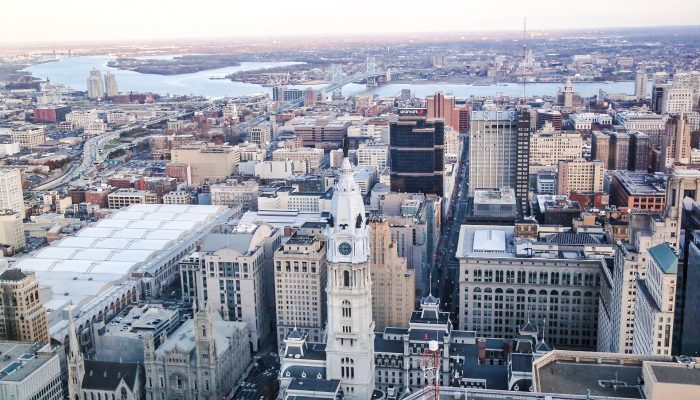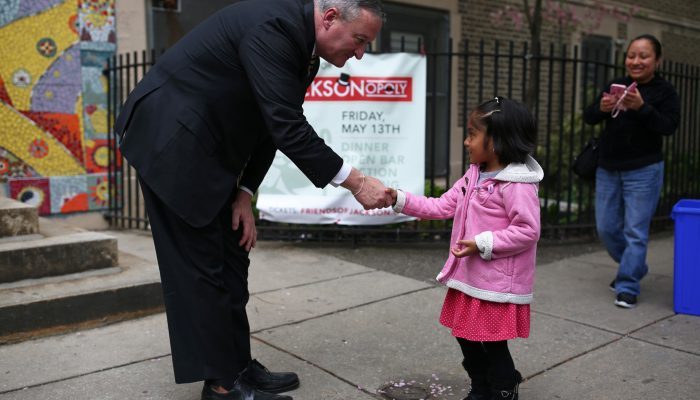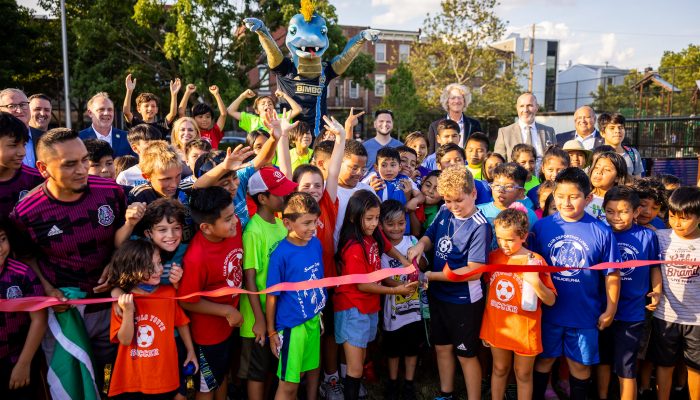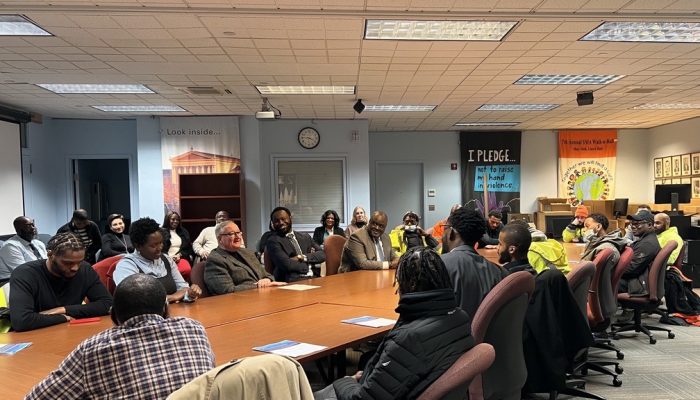The incident at the Center City Starbucks on April 12 painfully exposed the deep-rooted issue of implicit bias that lies at the core of race relations in 2018.
Implicit bias refers to the attitudes, perceptions and stereotypes we have without our conscious knowledge. We all have implicit biases that can affect how we interact with other people. However, when unchecked, these biases can have dramatic implications.
That pain was evident in the video, on the faces of Donte Robinson and Rashon Nelson as they were led out of the store in handcuffs simply because they chose to wait for a friend without making a purchase.
It reminds us that we still have a lot of work to do to address issues of implicit bias and race relations.
I believe that the recent policy changes announced by Starbucks to make its stores more inclusive and welcoming to the public are a step in the right direction.
Starbucks also has acknowledged the effects of the incident on the community and will conduct implicit bias trainings for all employees across their 8,000 stores.
However, much more still needs to be done.
We should all take pride in being a diverse city that welcomes all—the incident at Starbucks will not define us. What will define us is how we choose to address it.
Here’s some of what we’re doing:
- The Philadelphia Commission on Human Relations is currently reviewing Starbucks’ policies to see if there are any intentional or unintentional discriminatory consequences to those policies. They will also work alongside the Police Advisory Commission (PAC) to determine whether improvements can be made to ensure that similar incidents don’t happen again.
- The Philadelphia Police Department (PPD)’s Internal Affairs Division is investigating how the incident was handled at all levels.
- PPD also has determined the need for a new policy which will guide police response to calls for “Defiant Trespass.” This policy will provide officers with guidance on how to respond to calls related to trespassing on private business property that is open to the public. This will allow police to take actions that are most appropriate for each individual case, with the help of their supervisor. The final policy will be released in the coming weeks.
- Police Commissioner Ross and the rest of my administration continue to work with the ACLU, with the oversight of a federal judge, on pedestrian stops. Thanks to the Commissioner’s internal reforms, we have seen the number of pedestrian stops in the city drop 50% from 2015 to 2017.
- We’ve seen a similar decrease in the percentage of pedestrian stops conducted without reasonable suspicion. In addition, we remain committed to addressing any issues surrounding racial disparities in the pedestrian stops conducted in Philadelphia.
- Our criminal justice reform efforts remain focused on avoiding unnecessary incarcerations and reducing the racial, ethnic, and economic disparities in the criminal justice system. As a result, the city’s overall incarcerated population has decreased 36 percent since July 2015. The population stands currently at just around 5,100, the lowest it has been in 20 years.
- The declining prison population led to our decision to close the House of Correction. Reaching the point where we can shutter this facility is a milestone and a testament to the productive partnership among all our criminal justice partners and to the national support we’ve received from the MacArthur Foundation.
Both Rashon Nelson and Donte Robinson will partner with my administration to establish a $200,000 grant program for high school students who are aspiring entrepreneurs. I really admire the efforts of Rashon and Donte to turn their experience into a positive one.
I am confident that if we continue to work together to address racial disparities in our criminal justice system and bridge the gap between our diverse communities, all Philadelphians will feel safe and become even more proud of our city.




